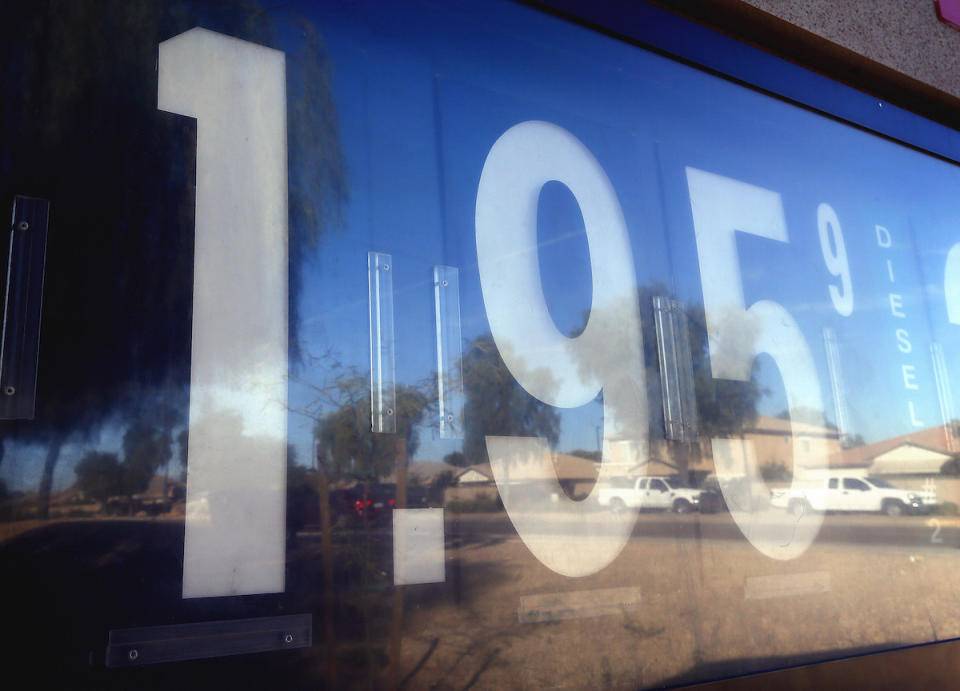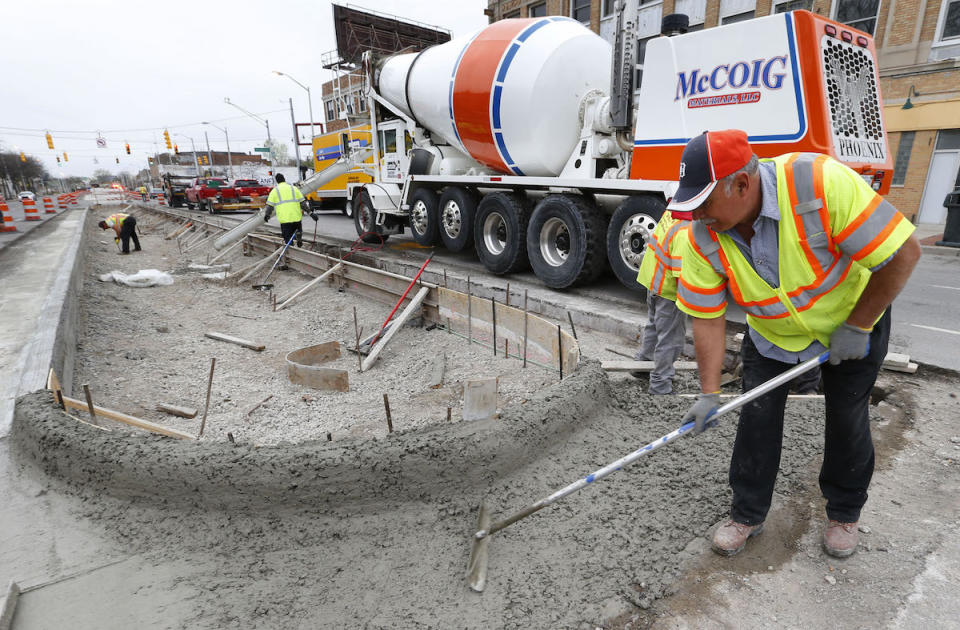It’s Time To Raise The Gas Tax By $1 A Gallon
Record low gas prices around the country create a unique opportunity to rebuild America’s infrastructure, help the auto industry and pay our debts.

As gas prices continue to drop to a nine-year low, according to the Automobile Association of America, and barrels of oil hover around $35, the time has come for the federal government to raise its gasoline tax. And not by a few pennies, or even a doubling of the 18.4 cents per gallon last raised in 1994.
It needs to go up a lot.
Last week, Rep. Earl Blumenauer (D-OR) tried to pass an amendment to raise the gas tax by 15 cents. That amendment died on the House floor for lots of reasons, some sound and some silly. But Blumenauer’s biggest mistake was thinking too small—a common problem in Washington D.C.
The federal government needs to put a $1 tax on every gallon of gasoline sold, which would raise about $140 billion dollars a year, according the estimated 136.78 billion gallons of gasoline used by Americans, according to the U.S. Energy Information Agency.
The transportation funding bill signed by President Obama last Friday calls for roughly $60 billion a year for the next five years. The new proposal is less than half what the Heritage Foundation estimates the Highway Trust Fund needs. A $1 a gallon tax provides serious money for a serious problem. So let’s tax gas by a buck and start fixing our roads.
This idea certainly goes against my libertarian leanings, but since no viable plan has been offered, and we still need roads, let’s do it. Gas prices are low. The people who use them should pay for them. Let’s artificially raise them and get people paving, fixing, and making better roads. There would be still money left for bike lanes and public transportation along highways.
That would certainly be enough money to calm the infrastructure doomsayers, at least through Christmas. No doubt, billions will be wasted on political boondoggles and pet projects like budget-breaking bullet trains.

But at some point don’t we have to take responsibility for our infrastructure? Since Washington has never shown itself to be fiscally responsible, we have to accept they are going to waste billions, building bridges to nowhere and otherwise disappearing our hard-earned dollars. I’m not being defeatist, I’m being reasonable. At least with this proposal, we won’t have to buy new rims during the winter.
The tax would provide some jobs, though I believe the estimates often touted are high. I do hope some of these crony contracts handed out locally to political backers of whomever is holding office, come with guarantees such as if a road crumbles in five or 10 years, the contractor makes all repairs free of charge. (But that’s as laughable as expecting this proposal being enough money.)
While I don’t believe the country is falling apart before our eyes in the drama as some politicians tell us, I do know that many roads need a lot of work. The $1 a gallon tax should cover the costs.
But let’s be clear, politicians impose taxes to effect behavior as much as they do to fund projects.
And cheap gas has slowed development of alternative powertrains and consumers desire to purchase electric and hybrid vehicles. (Instead, taxpayers around the country subsidize toys for rich people, who, wouldn’t even notice if their $100,000-plus Tesla Model X or BMW i8 came with a $7,500 write off.)
Carmakers can rightly say that people are not buying more efficient vehicles right now because there’s no natural incentive. Trucks once again outsell cars. Big pickup and SUV sales are setting new records and cheap gasoline is fueling those sales. By raising the price of gasoline from $2 a gallon to $3 a gallon, the government may push more people into smaller, more fuel-efficient cars, which is exactly what happened the first time gasoline jumped over $4 a gallon. But now those vehicles are being traded in for something bigger, faster and more powerful.
This, of course, might put the government in the predicament that recent fuel efficient vehicles did to the old tax: Cause tax dollars to go down, and then cause politicians to clamor about “losing revenue,” a political colloquialism to mean the inability to reach deeper into your pocket.
Meanwhile, consumers will soon begin to complain that carmakers have failed to meet Corporate Average Fuel Economy standards that begin increasing significantly in the coming years. Just Tuesday, the Environmental Protection Agency reported that the average fuel economy of new vehicles stagnated last year at 24.3 mpg after rising steadily before. Cheap gasoline is going to significantly hurt some carmakers (specifically Detroit-based carmakers) because CAFE fleet measurements are based upon vehicles people buy, not by what carmakers produce. Consumer trends are the biggest detriment to Detroit, not because Detroit doesn’t offer plenty of highly-efficient vehicles of excellent quality, but because no one is buying them.
Of course, if you oppose taxing gasoline more, there’s little reason to worry. It’s not going to happen. Too many groups will oppose it, each self interest adding up to a voice too shrill to see beyond themselves.
But it should.
Scott Burgess is a senior editor at Yahoo! Autos. He has covered the auto industry for the past 10 years in Detroit.

 Yahoo Autos
Yahoo Autos 